Confusion Do I Need A Plumber Or Heating Engineer Or Gas Engineer?
Why in 2019 is there still so much confusion over the need to employ a Plumber vs Heating Engineer vs Gas Engineer in the UK?
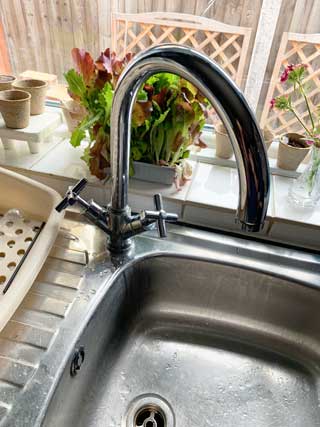
Having been a plumbing and heating engineer for over 20 years and a gas engineer for nearly 10 years, the number one confusion or mistake nearly every client makes is about requesting the relevant trade for their needs. The main statement I hear from clients time and time again is my boiler is broken and I need a plumber. This is actually the wrong requested tradesman or tradeswoman for your requirements, I will show you why.
This blog post is an attempt to lift the veil of confusion for you, so you can make an informed and confident decision for what your needs are.
If you have arrived here because you need the help or the assistance of either a Plumber, a Heating Engineer or a Gas Engineer and you live in either East London or North London area, you are in luck. Click here to get further immediate assistance.
So what is behind the confusion?
Quite simply put in the United Kingdom (UK) a Plumber, a Heating Engineer or a Gas Engineer have always been separate trades. On the surface from an ordinary person’s perspective, they appear to be one of the same. However, the differences are normally separated by the type of work each respective trade undertakes and is licensed to do. The confusion here lies in the detail as there can often be a small or large overlaps between the trades, for some types of the work a Plumber, Heating Engineer or Gas Engineer will undertake.
Below you will find I have separated descriptions of these trades out in an attempt to give you an easier understanding.
I will add at the time of writing this blog post that a growing number of Plumbers, Heating Engineers and Gas Engineers are up-skilling to become multi-trades. In it’s simplest form multi-trade means a trade have undertaken further relevant training and assessments to have the required knowledge, experience, skill sets and licencing to perform in their further desired fields of expertise. Therefore it is always worth asking as well as checking that the relevant tradesman or tradeswoman you wish to work with is competent and licensed, to carry out your required needs and instructions.
Still with me thus far? Let us now move on together at looking at these trades separately.
GAS ENGINEERS
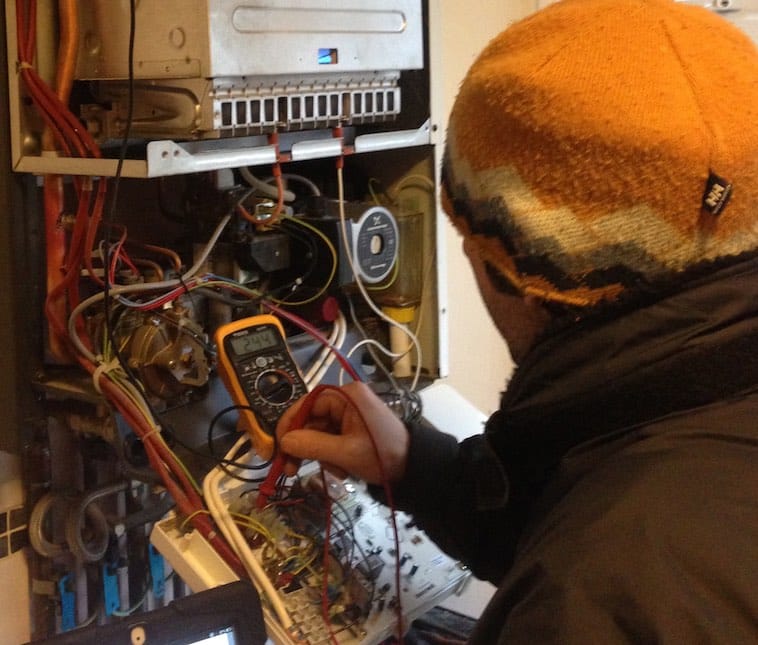
A GAS ENGINEER
I will start here because it is perhaps the less confusing out of all the trades with the clearest separation. The most logical distinction between a gas engineer and a plumber or heating engineer is that in order to be a gas engineer you need to be licensed and licensed annually. This is currently achieved through an organisation called Gas Safe who runs a licensed register for gas safe engineers in the UK. The Gas Safe register used to be run by CORGI but this changed a number of years ago. If I could please ask everyone as a point of safety to Click here and check the register, for your appointed gas engineer. This ensures he/she holds a current and valid license. Every day I personally read about illegal work carried out in the UK by non-licensed individuals which often affects properties and sadly sometimes it takes lives.
Most gas engineers are separated into different areas of specialist work they undertake, discussed further below. It is always best to double-check your requirements and your engineer’s qualifications. The main reason gas engineers separate into different areas of work is mostly due to their starting point in the industry. Gas engineers sometimes have no previous experience working in the gas industry or either plumbing and heating. They are required to go through many months if not years of training before becoming qualified, certified and licensed in the UK. Most gas engineers have worked in the plumbing and heating industry for many years and are either crossing over to the Gas industry or adding further to their skills sets “multi-trade”. You may find your tradesman or tradeswomen is already a gas engineer as well as a plumber and heating engineer which year on year is becoming more common.
Below I will talk about most gas engineers, as that is where some of the confusion lies and it is what most people will come across. Having obtained a Gas Safe License to work on Gas each license permits a gas safe engineer to work only on certain parts on a gas installation that an engineer is qualified to work on. Please see an example along the right-hand side or below dependant on your device.
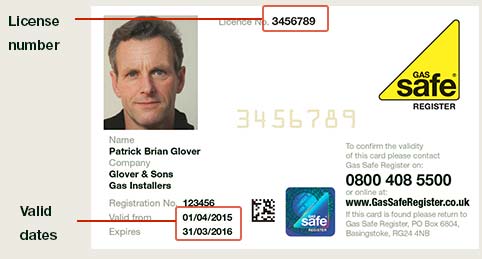
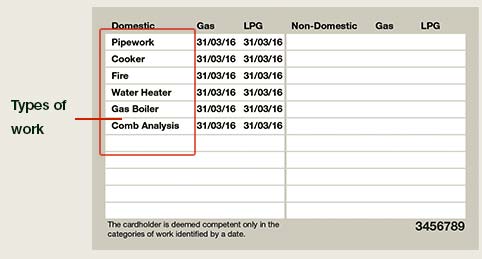
So you will note, not all gas engineers will do all types of work. Broadly speaking UK gas engineers are split into three fields of work: Installation and/or servicing and/or repairs. Some gas engineers are only licensed to work on gas meters whilst others cover all the types of work, again check your engineer and check their license. A licensed gas engineer is required to produce their license when asked. If in doubt always contact Gas Safe on 0800 408 5500 or enquiries@gassaferegister.co.uk
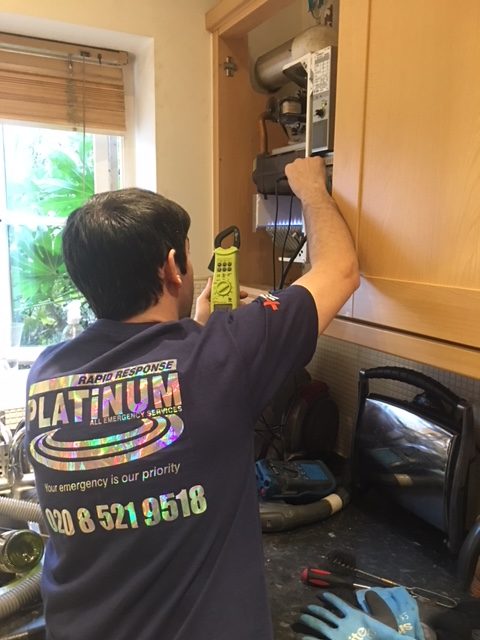
I shall try an attempt to bring everything you have read and learnt above thus far into a single example:
Imagine you wake up in the morning to find your home is freezing cold and you have no hot water. You look at the boiler say you have a Vaillant combination boiler for example. The boiler is flashing red with an error message of F61 being displayed. Do you call a plumber? A heating engineer or a gas engineer?
Well done! Now, remember when you contact a Gas Safe registered engineer, make sure they carry out repairs. Most will but some gas engineers only install new boilers and heating systems and do not work on gas boilers at all or repair them. Whilst some only carry out annual servicing work. It is a whole different skill set required from either installation of boilers, servicing boiler to repairing gas-fired boilers.
One quick additional point to make here as I personally get this question quite a bit:
“My boiler is not working and it needs a service”. These are two separate services a client is requesting. A boiler service is not a repair and vice versa. As I always explain to my clients that it should be repaired first. Sometimes clients require a boiler service and a repair, but for the most part, they assume a boiler service will get their boiler working again. Unfortunately most of the time the boiler has broken down through lack of servicing and now needs to be repaired first.
Before I move onto the next trade of a plumber. Please look after your boiler’s, share a little love to the little white box on your wall. It really is the heart of every home. Not servicing and/or maintaining your boiler is a false economy and will always hit you where it hurts at the most inconvenient time costing you unnecessary lost time as well as money.
A PLUMBER
Plumbers in the United Kingdom have a much closer relationship with heating engineers as discussed further below. In part, it is more natural for a plumber to progress their training and studying onto becoming a heating engineer. This is after they have successfully passed all the requirements of plumbing. From memory, it used to be split into 3 different National Vocational Qualifications (NVQ’s) levels 1-3 over 3/4 years with work placement. Level 1 was plumbing, level 2 was plumbing and advanced plumbing and level 3 was heating with electrical. However, this has likely all changed now but my point I am making has not.
Plumbers and heating engineers are still separate trades as it is not compulsory to do both trades. A plumber can equally be successful sticking to plumbing only. My advice as above always checks with your relevant tradesman or tradeswoman with your requirements. Please do note that a plumber or heating engineer in the UK does not require any license. I personally do believe this should change, but at the time of writing this blog in 2019, it is still not a requirement.
Types of work a plumber will undertake:
- Pipework (Water Supply Only).
- Leaks in pipes (Water Supply Only).
- Drainage systems in an external of property.
- Bathroom installations (WC, Bath/Shower Basin Sanitaryware etc).
- Appliances connections and disconnections (Water and Drainage Only).
- Waste disposal systems.
- Commissioning (Water and Drainage Only).
- Testing and faultfinding (Water and Drainage Only).
- Water Storage tanks and cylinders.
- Inspection and/or reports.
- Repairs or replacement work to any of the above.
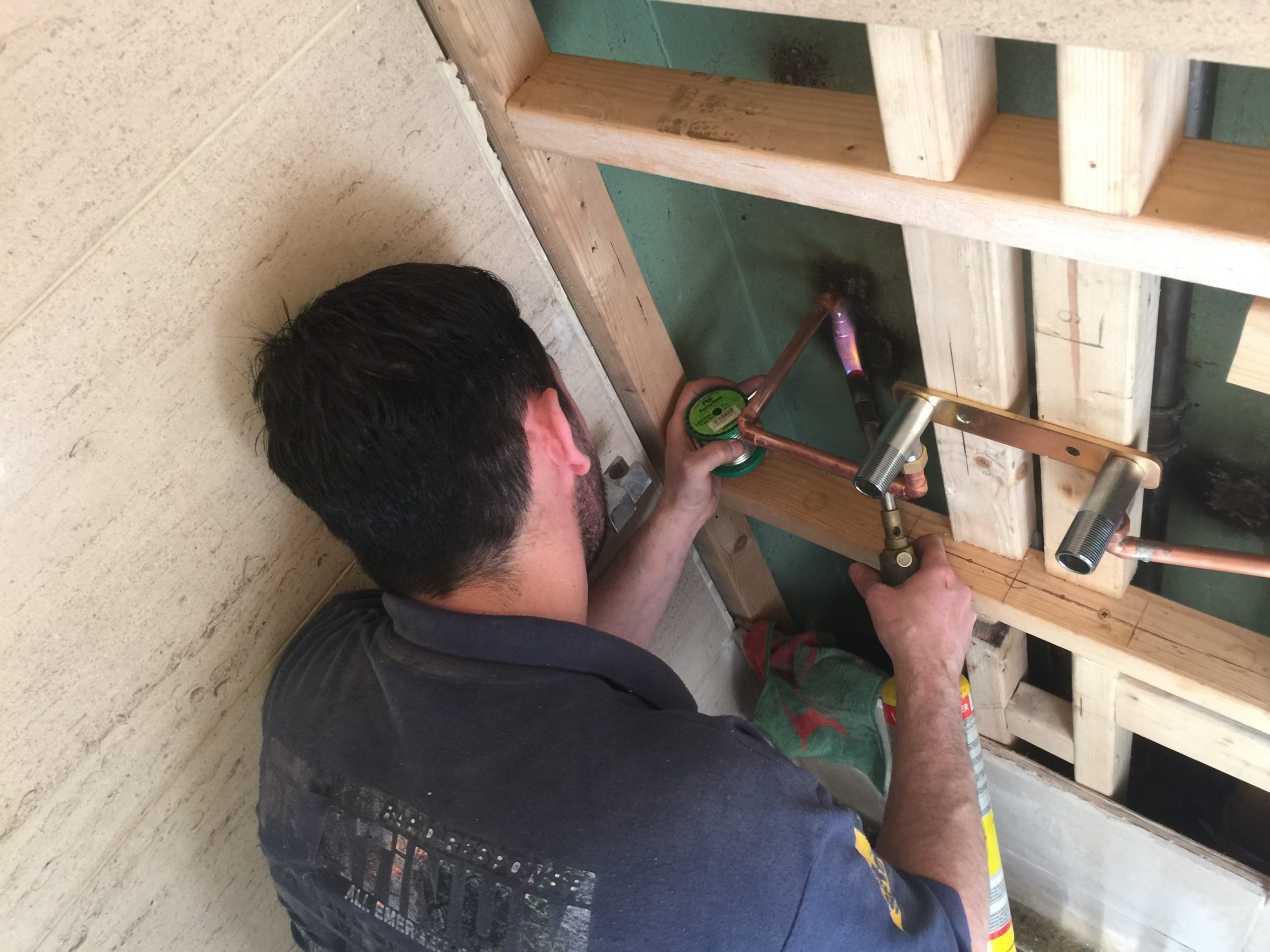
A HEATING ENGINEER
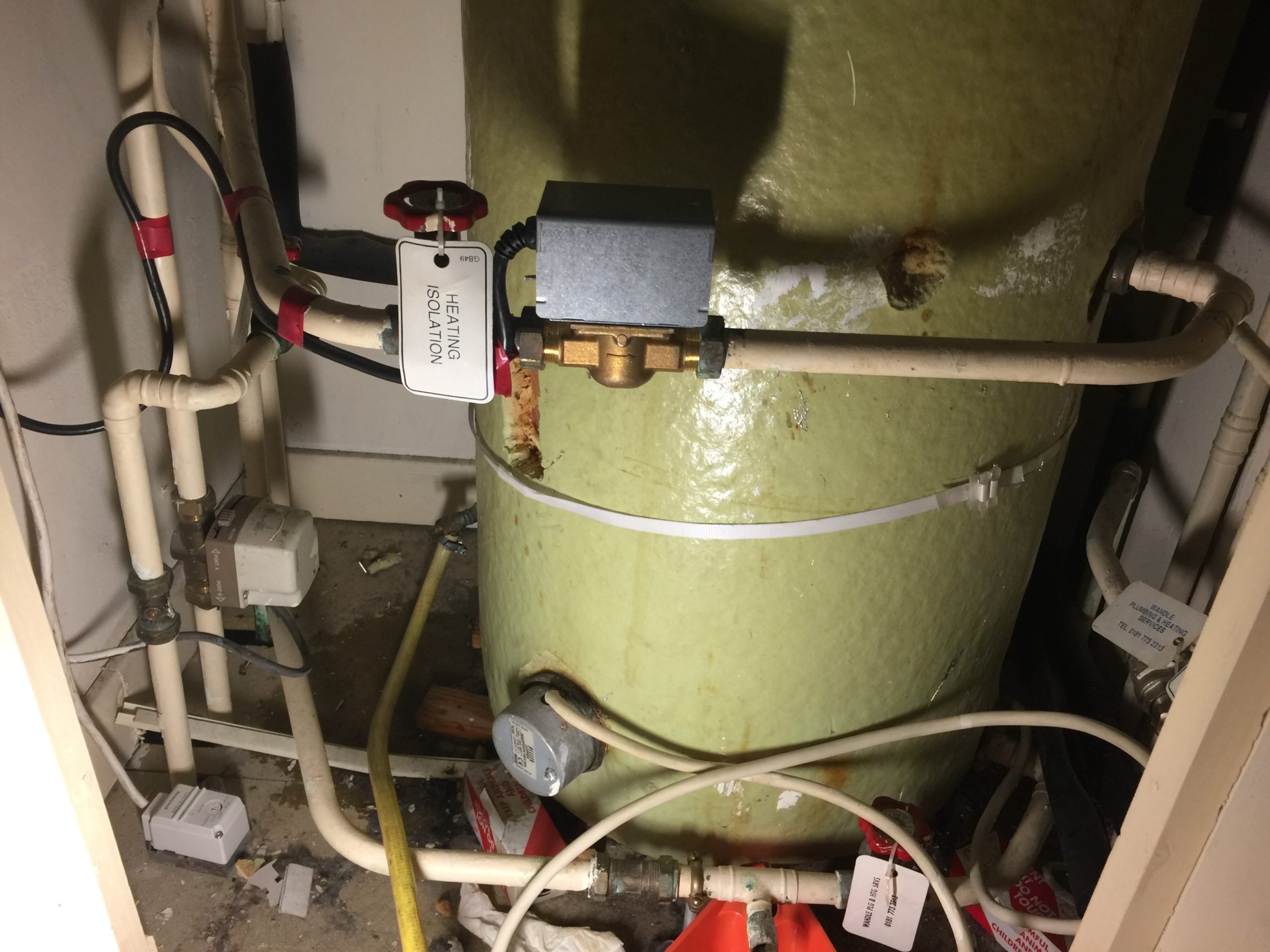
As briefly set out above a heating engineer is a natural progression of being a plumber. Heating engineers often hold a level 3 NVQ or equivalent, which is the next step up from a plumber. Please do note that although a heating engineer may be a plumber, which is often is the case. They are in no way licensed, qualified or competent to undertake any work on gas and are legally not permitted to do so. As already stated above always check and ask for a license.
Heating engineers often work alongside gas engineers carrying out as much work as possible on a heating system that does not require working with gas. Although it has to be said in 2019 it is becoming a lot harder to find a heating engineer that is not gas safe licensed. However always carry out the required checks detailed above to ensure you and your family’s safety when appointing any plumber, heating engineer or gas engineer.
Heating engineers often work on hot water storage cylinders and their controls as shown in the picture to the left or above dependant on the type of device you are using. Some people may make reference to these systems as electric boilers which is effectively what they are. Some hot water storage cylinders are open vented and gravity feed by a cold water storage tank (CWS), in either the loft space or directly above the cylinder. It should be noted, however, that some hot water storage cylinders are unvented. The unvented type of cylinders just to clarify require all engineers no matter if you are a plumber in the UK or a heating engineer or gas engineer to have current up to date certification to work on them doing maintenance, repairs or installation of them. The unvented cylinder works off of mains pressure so they are required by building regulations to be installed and maintained correctly Again always check with your appointed engineer for your peace of mind that they are (1) competent (2) qualified and (3) hold the correct licence for your requirements.
Types of work a heating engineer will undertake:
- All work listed above in the plumbers’ section in addition to;
- Assisting a Gas Engineer with day to day activities.
- Installation of Heating systems including boilers (except gas work and commissioning)
- Fault Finding and repairs on heating systems, eg hot water storage cylinders/electric boilers. *(excluding gas fired boilers) see Gas Engineers above.
- Chemical treatment and cleaning of heating systems.
- Powerflushing and cleaning of heating systems.
- Controls and wiring.
- Inspections and reports.
In closing a big thank you for taking the time to read our extremely long post. We really wanted to try and put something out there that was a little bit more detailed but as concise as possible. I hope we have achieved this objective for you.
As a 24-hour emergency company, It can be really important for ourselves to help our clients work out their needs from the get-go. We operate a plumbing and heating company that supplies all trades that a client may need. From gas engineers, heating engineers & plumbers, directly from Walthamstow in East London covering most of London.
We personally only use multi-trade women or men so we can always put our best foot forward to supply our clients needs. That way when a client requests a plumber in Walthamstow, we can always cover any job request even when the client has requested the wrong trade. All done at no extra cost to our clients, which means, rapid response and quick solutions to all their plumbing and heating needs.
if you have the time come say hello and check out our other blogs at Platinum Emergency Services Ltd. As always if you have enjoyed this big read please leave a comment below. We always enjoy reading your comments.
If you would like us to consider any plumber or heating subject for another blog or discussion please let us know.

Nice Blog!! The content you have shared is very elaborative and informative. Thanks a lot for sharing such a great piece of knowledge with us.
Thanks, Erin, glad to see you found our blog helpful. If you have any questions please feel free to let us know.
Still not sure who fixes Gas fires?
Thanks for your comment Toni. As the blog states only licensed gas engineers can work on gas appliances! If you have a gas fire you need a gas engineer. A second point you may have also missed. Please always ensure to check the gas engineers licence to determine if the licence is valid for the type of gas appliance or gas related work you require a gas engineer to work on “gas fires”. Hope that helps. Have another read. Check back soon.
I know this is nearly 4 years old but what a helpful guide especially as I am new to housing. Thanks guys
Most welcome Micheal, glad we helped. Thanks for your time.
Thank you for explaining that a heating engineer can install a heating system for you. My sister has been thinking about getting a new boiler since hers hasn’t been giving warm water. I will be sure to send this article to her, maybe that will help her know who to hire to consult about what to do.
Thank you, Sandra, happy to note you found this blog post useful. Just remember as long as her new boiler is electric then a heating engineer in the UK is fine, however, if she has a gas-fired boiled she will have to have a licensed Gas Safe engineer.
Great post and good advice thanks for your time in writing this lengthy article much appreciated.
Thank you, Isabelle, glad to hear you enjoyed the post.
Nice article. Thank you for sharing valuable information.
You are most welcome. It is great to hear you found the information valuable.
Thanks for this blog you post. It is very helpful to me and helps me understand the different plumbing trades and qualifications. I hope you post more post like this so that we can learn more about hiring the correct tradesman. Choosing the best plumber for your home is essential.
Thank you Howard. Really nice to hear the blog helped you. We have a central heating maintenance blog that will be published shortly. If you have any particular requests let us know.
Your blog is impressive and meaningful it contains a lot of information which is good for people. Thanks for posting such type of blog.
Hey Justin, you are most welcome, we post monthly so check back soon.
After a lot of research, I finally found the best blog regarding Plumbers. Your Blog is very effective and it provides a lot of information. Thanks for sharing this amazing content it really helps me a lot.
Thank you, David, for stopping by and leaving a comment. Great to know the blog helped you understand the differences between plumbers heating engineers and gas engineers.
Thanks for posting this blog. I love this blog, it gives a full clear explanation. It is very important to hire the right trade and service for you in order to fix your problem successfully. I look forward to reading more of your blog posts in the future.
Thank you Raymond for your support and kind words. Very much appreciated.
Really Nice and usefull post, this shows your in-depth knowledge about the industry
Thanks, Richard for your kind comment. Really pleased you found our blog post useful.
Great post with lots of things I never knew about. Thanks for sharing.Thanks Isabelle. You are most welcome.
Nice blog. Thanks for sharing.
Thanks Troy. You are most welcome. We are pleased you like our blog.
Since few days, I am researching on the work of plumber and then I found your blog that looks interesting to know more the plumbing services. And, your blog is really helpful to learning about the different types of plumbing work. Thanks for the information.
Thanks, Jack, for taking the time to have a read on the different work us plumbing and heating engineers carry out. We hope our blog helped clear up any questions you may have had. Stay safe.
Good, precise and informative blog. I learned a lot, thank you for sharing!!
Hey Peter, thanks for taking the time to read our blog. Great to hear you enjoyed it! Stay safe.
Nice blog. Thanks for sharing.
Thank you, Tracy, for stopping by. Happy New Year.
At the end of a traditional 4 year Plumbing Apprenticeship you qualify as a Plumber, Heating Engineer & Gas Engineer. You do all three.
I qualified in the same way 25 years ago. Apprentices continue to do so today. To claim a Plumber can’t service/install/repair a gas appliance is ridiculously inaccurate.
Good for you Mat. Most people do not do this route, the times have moved on a little bit in 25 years I am afraid. The point of you did it oneway clearly does not apply to everyone else! Please re-read the blog post, in particular where it states it is not compulsory to do all trades because it is not.
You therefore can not assume everyone has the relevant qualifications. This is just simply bad advice Matt. Secondly, no one has stated a plumber cant do other trades. The point that clearly has escaped you is to ensure they are qualified and licensed to do so.
Thanks for the effort. Keep up with the great work. The thoughts you express are really awesome. Hope you will write some more posts.
I have worked for 20years maintaining the plumbing and heating in a college they employed me on the strength of my previous work for other company’s we have now been taking over by a new management team and they will not let me touch any of the equipment that I did before are they allowed to do this kind regards Paul skipper
Hey Paul, thanks for stopping by. Sorry to hear your problem. In short, my 2 pence is as long as your pay, holiday and other entitlements are not being diminished then you have time to look for something more deserving of your skill sets. Good luck, best James
When facing confusion about whether to call a plumber, heating engineer, or gas engineer, it’s essential to consider the specific issue at hand. Plumbers handle water-related problems, heating engineers deal with heating systems, while gas engineers are experts in gas appliances. Choosing the right specialist ensures a swift and effective solution.
Thanks Clover for your input. Although your comment is a logical starting point it is not 100% accurate. The trades of today do not stick to single fields of expertise, especially in the UK. Many trades up skill and are extremely competent and qualified to carry out a vast array of other specialist trades. In short always ask the trades directly if they are competent and where required licensed to carry out the required work requested. In the UK especially for gas related work the tradesman are also required to keep there Gas Safe licenses with them. Thanks again for your time, hope this helps with your understanding best James